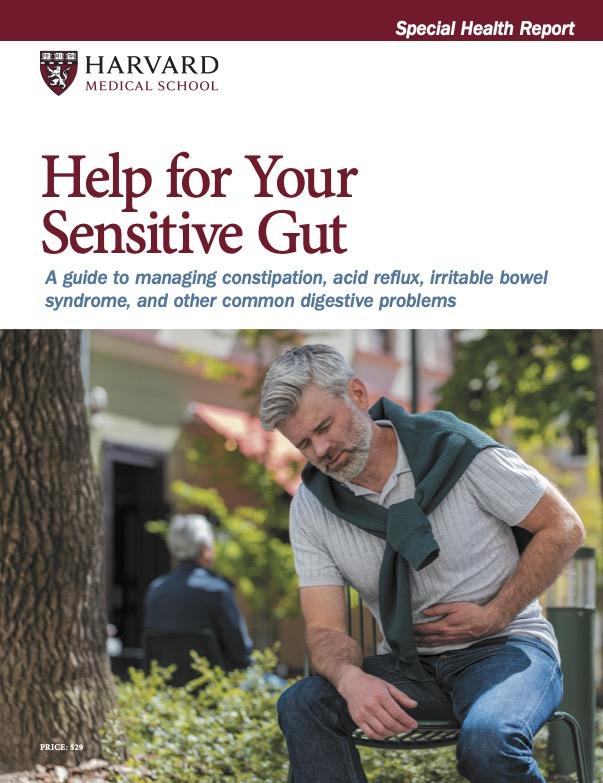You don't say? Facts about flatulence
- Reviewed by Howard E. LeWine, MD, Chief Medical Editor, Harvard Health Publishing; Editorial Advisory Board Member, Harvard Health Publishing

Everyone does it, but no one talks about it. Passing gas, that is. Here's everything you ever wanted to know about flatulence (but perhaps were afraid to ask).
Why do we do pass gas? It's normal to have some air in the digestive tract. Air accumulates when you swallow, and the process of digestion generates gases as well. When too much builds up, the body releases it. Passing gas keeps the pressure within the intestinal tract low and prevents painful stretching of the stomach and intestines. Burping accomplishes the same purpose.
How often? On average, the body produces approximately two liters of flatus (the technical name for intestinal gas) daily, and people pass gas about 14 times a day.
Why do some foods cause gas? Common gas-producing foods include beans; certain vegetables, such as cabbage, brussels sprouts, broccoli, cauliflower, and peas; oat bran and other high-fiber foods; carbonated beverages; foods containing sorbitol (a sugar alcohol used in many low-calorie foods); and fructose, a natural sugar present in many fruits, including prunes, pears, grapes, dates, and figs. These foods break down slowly, which allows more time for gas to be produced and build up.
What makes gas smell? Slow-digesting foods don't completely break down until they reach the large intestine, where they are digested by bacteria. The bacteria also ferment the undigested foods, which produces foul-smelling gases like methane and hydrogen sulfide.
Image: © B.S.P.I./Getty Images
About the Author

Matthew Solan, Former Executive Editor, Harvard Men's Health Watch
About the Reviewer

Howard E. LeWine, MD, Chief Medical Editor, Harvard Health Publishing; Editorial Advisory Board Member, Harvard Health Publishing
Disclaimer:
As a service to our readers, Harvard Health Publishing provides access to our library of archived content. Please note the date of last review or update on all articles.
No content on this site, regardless of date, should ever be used as a substitute for direct medical advice from your doctor or other qualified clinician.
















